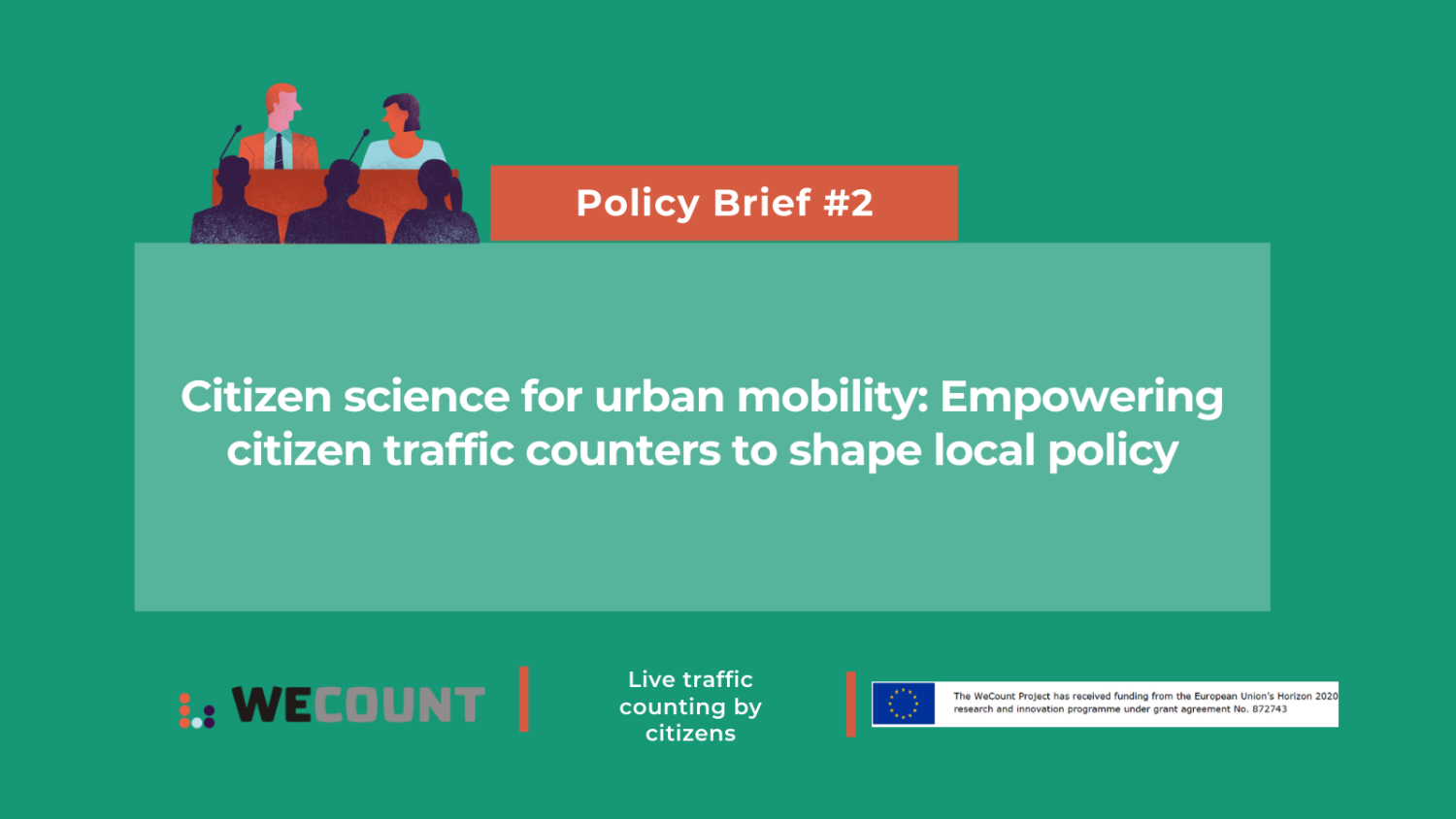
Citizen science for sustainable urban mobility: Empowering citizen traffic counters to shape local policy: Policy Brief #2

WeCount enquired into which kind of innovative citizen science methodologies and tools are effective in empowering citizens to influence policy-making processes. As citizen participation in science and urban mobility gains traction, challenges to citizen engagement approaches arise. These must be well-designed and carefully implemented to empower citizens to use their data to advocate for behavioural and policy change.
Involving citizens in science projects is beneficial only if their contribution is recognisable and well-identifiable in project results. Simply handing out tools (in this case, traffic counting sensors) is far from enough. Citizen engagement activities must be in place to inform citizens about how to act. WeCount citizen science approaches proved to be effective in actively engaging the more than 1,000 citizens about the power of crowdsourced data in shaping local transport policies. This is the challenge that this WeCount second Policy Brief addresses, showcasing real-life examples for achieving change by proactive citizens in co-designing local traffic policies.
WeCount’s #2 Policy Brief puts forth the following policy recommendations:
- Citizen science is an invaluable tool for bottom-up policy development in urban mobility
- The European Union should continue to fund Citizen Science research and innovation projects, backed by strategic policy/institutional support, for broadscale support and alignment with the European Green Deal.
- Citizen Science engagement methodologies can assist the development of Sustainable Urban Mobility Plans (SUMPs), with a more inclusive, citizen-centred, policy-making process.
To get a full picture of these recommendations and the rationale that back them, please have a look at the complete full Policy Brief here.